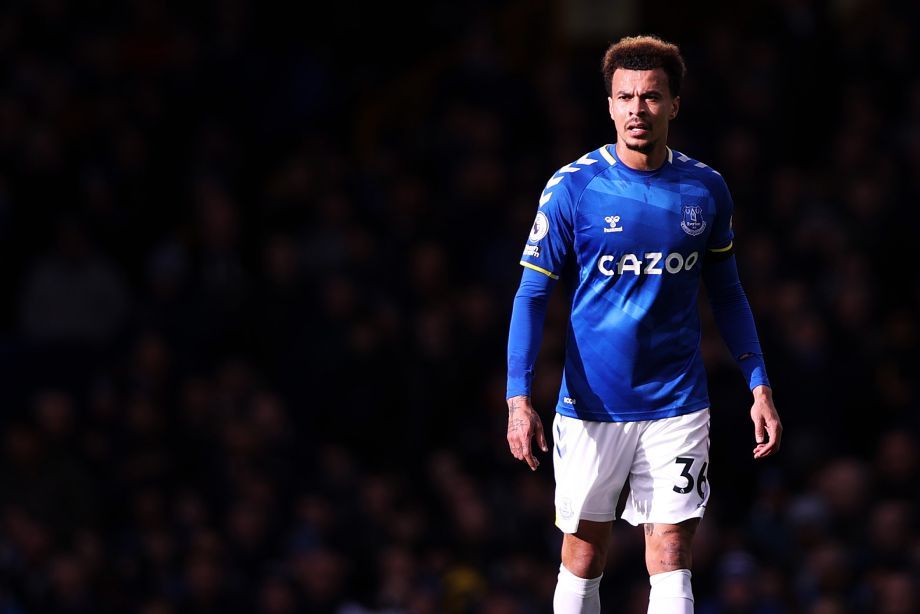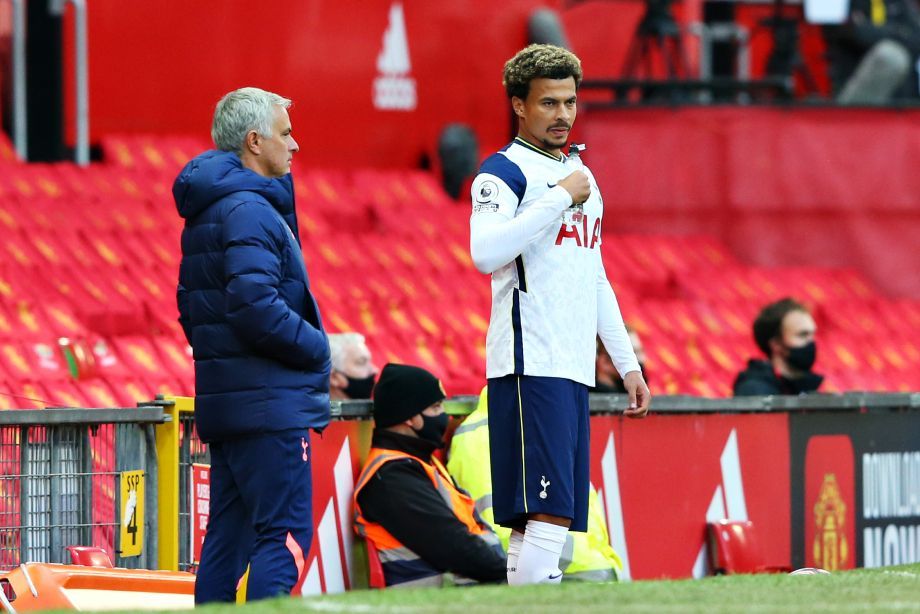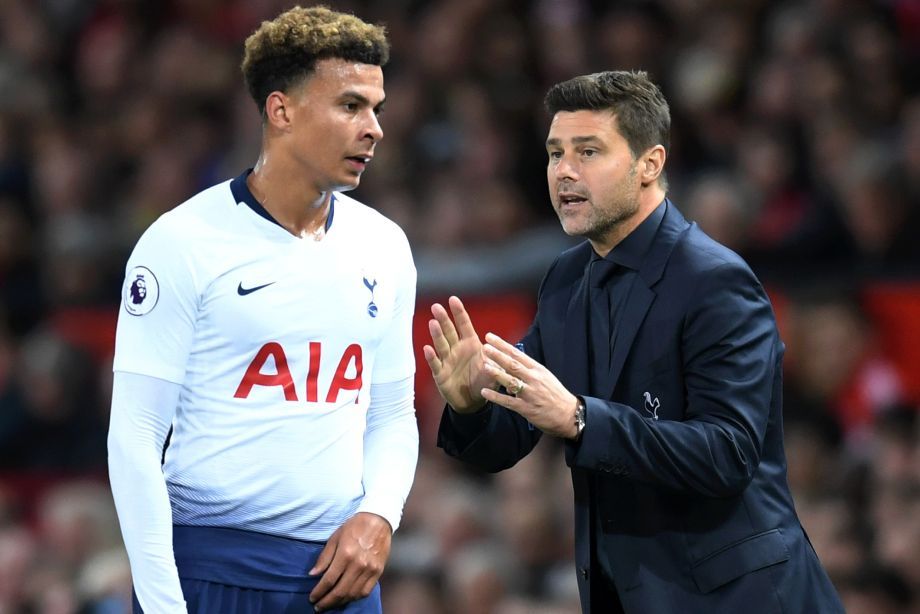Childhood abuse, rehab - a few weeks ago. But the talented Englishman is ready to return to top-level football.
The most powerful interview of the year has been released: Dele Alli candidly spoke with Gary Neville for The Overlap project. It is heavy, powerful, and at the same time, courageous.
Neville started with a simple question: "How are you? Are you okay?" As Alli said, he had been asked this question very often. And for the first time in a long time, he can finally answer, "Yes, I'm okay. Mentally, I'm better than ever. Although I'm injured, I feel good, but my passion for football has returned."
Alli was at "Besiktas," but in the middle of the season, he suddenly disappeared: rumors circulated that it was due to bad habits, relationship issues with his girlfriend, and the coach's unhappiness with him. But everything turned out to be different from what the media and many in the football world thought: the once-promising talent of the English national team was fighting his own battles.
We have translated Alli's speech and presented it as a monologue.
What happened to Dele Alli?
"Now is the time to tell people what happened. It isn't easy to talk about it because it happened recently, and I... I'm scared to discuss it but now is the right time.
I WAS IN A PSYCHOLOGICAL PIT when I returned from Turkey and found out I needed surgery. I decided that I needed to go to rehab for psychologically traumatized people, and the time had come. You can't tell someone they must go to such a place - you must realize it yourself, make an independent decision, and understand that nothing else will help. I was going in circles with bad things - relying on something that only harmed me. I woke up every morning and won the battle: I went to training, smiled, and showed everyone I was happy. But inside, I was losing that battle. I FELT DRAWN BACK INTO THAT TERRIBLE CYCLE when I got injured and was told I needed surgery. And I decided it was time. I went to the clinic for six weeks. "Everton" was incredible: the club supported me 100% (in the 2022/2023 season, Alli was on loan at "Besiktas," but now he's back in England. - Editor's note). I will always be grateful to them, no matter what happens in the future. They were open, honest, and sincere - it was essential when I made the most serious decision of my life.
I'm glad I could do it. People perceive rehab as scary, but I could never have imagined how much it would give me. I was in a terrible state.
A lot happened to me in my childhood, and I could never realize and admit that I was doing stupid things that I now blame myself for. But if we rewind... Not everything was under my control. Understanding this and learning lessons from it - helped me with other things. Letting go of certain items, destructive emotions that I held onto and that slowed me down and held me back.
I came out of rehab three weeks ago. I didn't think I would be ready to discuss it so soon, but now I feel good and strong enough to do it. It's even better this way: we live in a world where tabloids can know everything about you. They called my team and talked about knowing where I was and some things I did in the past. But I don't care what people think. Let them write whatever they want. It just doesn't match reality. My revelations can help others and show them they are not alone. That asking for help doesn't make you weak.
In rehab, they helped me put the puzzle together: the reasons behind many of the things that happened to me remained a mystery. For example, house parties. I realized they were very similar to the ones my birth mother used to throw - and it was a comfort zone for me.
In the USA, where I was in the clinic, I met many interesting people from different professions, different life paths. It was one of the best teams I could participate in."

The onset of addiction
"It all started a long time ago. I didn't realize what I was doing for a long time, bringing myself to a helpless state, what I was feeling. Usually, people drink for pleasure, but I was trying to escape something or pursue other goals. That does a lot of damage to you. I was addicted to sleeping pills. I'm not the only one who has faced this in life, even in football. Perhaps my revelation will help people.
Don't get me wrong, but the pills work. With our schedule, when you have to wake up early in the morning and go to training. With all the adrenaline, sometimes it's difficult to fall asleep, so taking a pill to wake up in good shape the next day - there's nothing wrong with that. But when your dopamine system is as broken as mine, there will be a reverse effect. Sleeping pills work for the problem they are intended for. But only until they stop working for you. I abused them too much. Don't get me wrong: sometimes, I would stop and live without them. It seemed to me that I didn't have a severe problem. I didn't understand how wrong everything was. But I never dealt with the root of the problem, which appeared as a child, due to all the traumas I experienced. I tried to cope on my own. I never told anyone anything, although a couple of times, my foster family caught me crying in my room and asked what was happening to me and how I was feeling.
But I couldn't say anything. Because I wanted to deal with it myself, I didn't want to open up to anyone. Many people around me tried to help me because they saw that I wasn't myself. I lost myself for a few years and turned away from everyone, not accepting help from anyone. Not even from the family who saved my life. I think they heard a couple of times that I had problems with sleeping pills, but I swore to them that I had never taken them. And that was part of my problem: I didn't admit I was dependent. But, of course, I was.
When I stopped, I still sometimes teetered on the edge: I stayed sober, but sometimes, when something happened, those feelings would come back to me... And I wanted to escape because alcohol and drugs were what worked for me at the time, and I stopped all of it. I took a lot. I don't want to talk about numbers, but it was too much. Sometimes, terrible things happen. Usually, people take pills to sleep, but I took them for other reasons. I took them throughout the day - sometimes starting at 11 in the morning. Not on game day, of course, but on a day off - yes. To escape from reality.
Where did I get the pills? It all started with a doctor giving them to help me sleep: one tablet to fall asleep. For many people, that's normal, but in my case, those pills fixed what I couldn't fix myself. And you get used to it. Then, when I needed more... If you need something, you will always find a way to get it.
Many people think football is easy. Yes, you have a high-quality life and money, but it's more complicated. Don't get me wrong: I love football and owe a lot to it. But what it's like psychologically - people will only understand once they experience it themselves. Rejection. Daily struggle. Conversations that you need to be better. Even losing can affect you psychologically. And yet, you have to be ready to smile the next day.
When everything went wrong
"It's hard to pinpoint one specific moment. Perhaps the saddest moment was when Mourinho was the coach of Tottenham. I think I was 24.
One morning, I woke up and had to go to training - that was when he stopped playing with me. And I was in a bad state. I remember just looking at myself in the mirror... It sounds dramatic, but I looked in the mirror and thought, "Can I end my career at 24 years old? Stop doing what I love?" It hurt me to have such a thought at 24 years old. It hurt a lot. It was another thing I had to carry on my shoulders.

During that period, I partied a lot; there were a lot of parties. The reality that tabloids talk about is not reality. They called me a "partier" even before I became one. People perceived me very differently from how I lived. And then, it got to a point where it happened, and I found myself in the wrong position. I held a lot inside, but it all built up, and in the end, I broke - it all turned into all the wrong actions. I don't blame Mourinho or anyone else. My reaction was terrible. It was something I had no control over. I'm glad it happened back then - because it could have happened when I didn't feel supported, find a purpose, or understand why I'm here and doing all of this. Football gave me meaning - something to hold on to. I'll repeat it: I don't blame anyone. It was always me against myself. I've always been my hero and my own biggest enemy.
Many problems started because I kept quiet, not letting people into my life. But that's how I felt safe. If you know about my life, you can understand: for me, it has always been this way: if you let people get close to you, they can hurt you the most. So I hid. But it didn't work."
Childhood
"I'll tell you a few things that can give you an idea of my childhood.
At age six, my mother's friend would harass me; he often came to our house. My mother was an alcoholic. Then they sent me to Africa - to learn discipline. I often got into trouble with the police; there were no rules for me - I grew up without them. My mother drank a lot, but I don't blame her. Not for anything that happened to me. Now I understand the situation she was in. My biological father lived in Africa, where I was sent. It was terrible - I didn't want to be there at all, and after six months, he sent me back.
At seven, I started smoking. At eight, I started selling drugs. An adult told me that the police wouldn't stop a child on a bicycle, so I rode with my soccer ball on my back, and underneath were drugs. At 11, someone hanged me from a bridge - a man from the neighboring house. At 12, I was adopted by a wonderful family - I couldn't dream of better people. What they did for me was incredible. If God creates people, it's them. When I started living with them, it was tough for me to open up to them - it was much easier to be alone with myself, so they wouldn't suddenly reject me. I tried to be the best child for them.
When I was 18, my biological parents came to the press and accused my adoptive family of not letting me see them. But that wasn't true: my mother always told me to visit my birth mother - I didn't want to. My biological parents said my adoptive parents just wanted to get money from my contract."
Pochettino
"Mauricio Pochettino was the best coach; at that time, I couldn't even dream of a better coach. You know, it was him and his team, not just him. There were Jesus [Perez], Miguel D'Agostino, and Toni Jimenez. They are wonderful people, so understanding. It didn't feel like a player-manager relationship. I felt like it was more profound.
Poch understood all my decisions, he cared about me as a person more than as a footballer, and that's what I needed at the time. When you find yourself in a new place, it can be scary. But I didn't have that fear because he gave me a platform to perform at my best and feel comfortable.

Players always said I was fearless. But I needed to be bolder. I was just brave. There's a big difference. Because I was scared of many things, but when you're brave, you still feel the fear, but you do it anyway. And that's what he allowed me to do. Pochettino helped me a lot in that career period, so it was difficult for me when he left. It was hard for me to let anyone in at that moment and be open. Everything seemed so fake. When people talked to me, the conversations were not genuine.
It's hard to explain. It's all in my head and my ego. I didn't want to open up because I didn't feel like they wanted to know the real me. Because of that, it was difficult for me to be loyal and give myself entirely to them, which hurt me in the long run."
The future
"I want to become better both as a footballer and a person. My revelation will help people. It will help me - I needed to explain myself.
I need a few more weeks to recover, and I will be back in the game. I am excited for the new season with Everton."
14.07.2023
